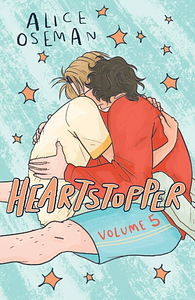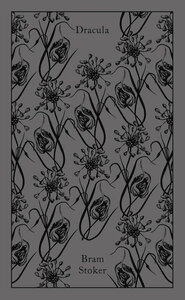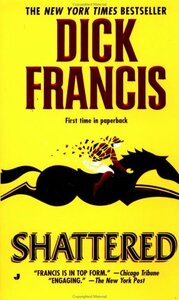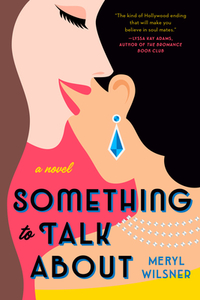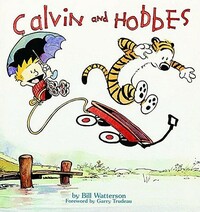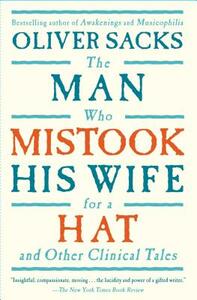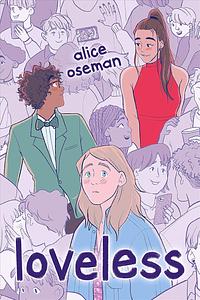Take a photo of a barcode or cover
lenorayoder's Reviews (154)
emotional
hopeful
fast-paced
Loveable characters:
Yes
Diverse cast of characters:
Yes
love love love perfect! absolutely flew by. love the art. love nick deepening his friendships! this one focuses a lot on nick and charlie but even in the background it’s so nice to see how all their friends are developing. i’m happy they’re both in such a good place individually and in their relationship by the end of the book, that had made me a bit anxious in past volumes. tori!
Moderate: Eating disorder
Minor: Homophobia, Acephobia/Arophobia
mysterious
Plot or Character Driven:
Plot
Strong character development:
No
Diverse cast of characters:
No
Flaws of characters a main focus:
No
Overall, this is a high three stars for me. There’s a lot to love here, but there are also some significant problems. If a book that I really want to read takes me 19 days to get through (most of those being swallowed by the middle of the book), I just can’t say that I really liked it.
First the pros: Dracula has the makings of a fascinating villain, evidenced by the many adaptations he’s inspired. There are a few moments that are fairly chilling, but I think his real strength is that every interaction has a creepy and/or disturbing undertone that makes him compelling. Andbuying a home next to an asylum is SO smart. Count De Ville made me CACKLE, what a dramatic bitch. I love all of the vampire lore, and seeing how much has changed and stayed the same around vampire (and werewolf!) mythos since this book was published. I’m especially curious about all the rose stuff, I’ve never heard that before. The idea that vampirism is almost a trance state that happens more and more often before death makes it permanent is such a good idea and works really well here.
I love Jonathan’s journals, and how much of a wife guy he is. Which makes sense because Mina is amazing, and I was so relieved when we first switched to her journals and she was an interesting character. Loved when Jonathan threw some serious shade at Van Helsing in his journalfor making Mina upset (“with actually a smile”) . I found Seward’s proposal incredibly endearing. I love the weird dynamic that Morris, Seward, and Arthur have in combination with Lucy and without her - those boys are in looooove. I think Lucy SHOULD be allowed to marry all three of them. The whole vampire hunting crew is a little stupid (why aren’t they all wearing crucifixes 24/7 at the very least?), but honestly I think that’s realistic. Like Jonathan making a will in case he dies vampire hunting and the only beneficiaries being members of the vampire hunting party ? Iconic. What an idiot. I wonder if he ever grew that gray hair back out .
Some of the writing hits really hard - what comes to mind immediately is the description of Lucy’sevil vampire face, especially the part about Medusa’s snakes , and Jonathan and Seward’s early diary entries.
The cons: Dracula is absent for a lot of the book, and when we see him again he’snot as impressive as he was in Jonathan’s early diary entries. I don’t like that a lot of his character is interpreted through Van Helsing. I don’t think we’re supposed to see Van Helsing as an unreliable narrator, which is frustrating as both a missed opportunity and because the way he deduces Dracula’s motivations and actions is so flawed that he shouldn’t end up being right. Also all the “child-brain” and criminal determinism was problematic, weird, and really undermined Dracula’s scare factor. The vampire lore also gets a little muddled once Van Helsing starts interpreting. Vampires resting in holy ground and fixing that by making the ground more holy was just plain stupid. The three-foot-long stake made me laugh and I doubt that was the intention.
For an epistolary novel I don’t think different character’s writing varies enough in tone, and some of the dialogue feels unrealistic, especially characters writing dialogue with accents and poor grammar into their journals - it was irritating to read for no reason, like who does that. Steward’s diary and Jonathan’s early diary feel mostly realistic, but the rest of the time they don’t feel enough like actual entries for me. Also, the in-universe explanation for why this book exists makes all of the really slow parts (and there are SLOW PARTS) make no sense, and I resented those slogs more once I read the explanation. Either filler should be cut out, or the filler should form an actual subplot. There were chunks of the book that took me days and days to read because they just weren’t compelling.
Mina is an interesting character with a lot of potential but Stoker is clearly sexist and that sexism really mars her, and makes a mess of Lucy (and her mom!). Hated how Van Helsing talked about both of them but especially Mina, ugh. Renfield feels like a lost character - it was never really clear what was going on with him, and I think that needed to be clearer with a better resolution, or he needed to be in less of the book. Van Helsing really rubbed me the wrong way, especially with the constant monologuing. I’m surprised he’s become such a focus of adaptations.
The action sequences are all lackluster, and a lot of them are the result of pretty contrived plotting (like thekeeping things from Mina, then not, then back again ). Overall I think this book mostly suffers from being a little too long. Some plot points get stretched too far, some themes are poorly defined, and a lot of characters are underdeveloped. If Bram Stoker had had a good 20th or 21st century editor I think this book would have been four or even five stars, but alas. I think the fact that almost every adaptation varies wildly from the source material kind of speaks for itself.
First the pros: Dracula has the makings of a fascinating villain, evidenced by the many adaptations he’s inspired. There are a few moments that are fairly chilling, but I think his real strength is that every interaction has a creepy and/or disturbing undertone that makes him compelling. And
I love Jonathan’s journals, and how much of a wife guy he is. Which makes sense because Mina is amazing, and I was so relieved when we first switched to her journals and she was an interesting character. Loved when Jonathan threw some serious shade at Van Helsing in his journal
Some of the writing hits really hard - what comes to mind immediately is the description of Lucy’s
The cons: Dracula is absent for a lot of the book, and when we see him again he’s
For an epistolary novel I don’t think different character’s writing varies enough in tone, and some of the dialogue feels unrealistic, especially characters writing dialogue with accents and poor grammar into their journals - it was irritating to read for no reason, like who does that. Steward’s diary and Jonathan’s early diary feel mostly realistic, but the rest of the time they don’t feel enough like actual entries for me. Also, the in-universe explanation for why this book exists makes all of the really slow parts (and there are SLOW PARTS) make no sense, and I resented those slogs more once I read the explanation. Either filler should be cut out, or the filler should form an actual subplot. There were chunks of the book that took me days and days to read because they just weren’t compelling.
Mina is an interesting character with a lot of potential but Stoker is clearly sexist and that sexism really mars her, and makes a mess of Lucy (and her mom!). Hated how Van Helsing talked about both of them but especially Mina, ugh. Renfield feels like a lost character - it was never really clear what was going on with him, and I think that needed to be clearer with a better resolution, or he needed to be in less of the book. Van Helsing really rubbed me the wrong way, especially with the constant monologuing. I’m surprised he’s become such a focus of adaptations.
The action sequences are all lackluster, and a lot of them are the result of pretty contrived plotting (like the
Moderate: Sexism, Blood
Minor: Racism, Xenophobia, Antisemitism
emotional
mysterious
sad
tense
Diverse cast of characters:
No
Nice prose and it’s interesting to read this story from one unreliable perspective. The characters are intriguing and feel like real people, but because of the drabble-y nature of the book it never feels like we know them super well. We also never become immersed in any one narrative. The story overall is just a bit too disconnected/ungrounded for me.
Moderate: Suicide attempt, Classism
Minor: Alcoholism, Drug use, Alcohol
Plot or Character Driven:
Plot
Strong character development:
No
Loveable characters:
No
Diverse cast of characters:
No
Flaws of characters a main focus:
No
Competently plotted and written, but nothing special. In fact, a little boring. Rose makes for a good villain, but none of the characters are given much room to breathe, including her. The scenario the protagonist sets up for the finale of the book is pretty stupid given the resources at his disposal. Didn’t get why characters in the year 2000 are so scandalized by a 30 year old man wearing a singlet.
Diverse cast of characters:
Yes
This was okay - not terrible but not very good either. I think this is a good premise, but the pacing is really strange. There’s also an over-reliance on miscommunication, it causes pretty much all of the big and small obstacles/problems the characters face. I think the characters are also underdeveloped - by the end of the book I still didn’t really feel like I knew them, and it felt like all of their depth was told to me, not shown.
Minor: Homophobia, Racism, Sexism, Sexual harassment
funny
fast-paced
Strong character development:
No
Some of these are really clever, most of them are just okay. Overall got better the further I read, but I think compiling the comics like this doesn’t do them any favors.
Minor: Racism
adventurous
funny
Strong character development:
No
Diverse cast of characters:
No
I really liked some of these, but most of them just weren’t my sense of humor. I loved the art though. The facial expressions are great, some of the set pieces are really cool (that armchair?!), and I loved the parents’ outfits, especially the mom’s.
informative
reflective
These cases are interesting, but I don’t like the way they’re written about. On a structural level, some chapters feel out of order. For example, chapter 7 takes the time to define and discuss proprioception - but it comes after chapter 3, which focuses on a case where a patient lost proprioception.
As for the content, I don’t like the author’s attitude towards his patients. The way he talks about them, philosophizes, and speculates about their inner lives really rubs me the wrong way. He seems to be taking more care than a lot of doctors did at the time (yikes), but it still doesn’t really feel like Sacks truly sees his patients as real, actual people.
As for the content, I don’t like the author’s attitude towards his patients. The way he talks about them, philosophizes, and speculates about their inner lives really rubs me the wrong way. He seems to be taking more care than a lot of doctors did at the time (yikes), but it still doesn’t really feel like Sacks truly sees his patients as real, actual people.
Graphic: Ableism
Minor: Alcoholism, Child abuse, War
funny
lighthearted
fast-paced
Diverse cast of characters:
No
The writing isn’t as smooth as I remember, but it was a nostalgic read. It’s a classic for a reason! If I were a kid this would be five stars.
emotional
Strong character development:
Yes
Diverse cast of characters:
Complicated
I really liked this! 4 stars because I feel like this book is missing something, but not sure how to articulate that. The closest I can get is that this book feels more concerned with conveying a message than telling a story. I think Oseman should consider writing non-fiction - maybe a memoir or collection of essays about different people’s experiences with self-discovery.
After reading Solitaire, it’s nice to see how Oseman’s writing and awareness of aro/ace identities has evolved. I think I’m a little too old for her books, but I enjoy her work and am looking forward to reading more of it.
I was frustrated that Pip hadn’t apologized to anyone by the end of the book - everyone else owned up to their shit, and I think Pip was in the wrong about some stuff too. I don’t like that her mistakes weren’t addressed in a book that clearly wants to show characters learning how to communicate with each other.
After reading Solitaire, it’s nice to see how Oseman’s writing and awareness of aro/ace identities has evolved. I think I’m a little too old for her books, but I enjoy her work and am looking forward to reading more of it.
I was frustrated that Pip hadn’t apologized to anyone by the end of the book - everyone else owned up to their shit, and I think Pip was in the wrong about some stuff too. I don’t like that her mistakes weren’t addressed in a book that clearly wants to show characters learning how to communicate with each other.
Graphic: Acephobia/Arophobia
Moderate: Transphobia, Alcohol
Minor: Alcoholism, Emotional abuse, Toxic relationship
